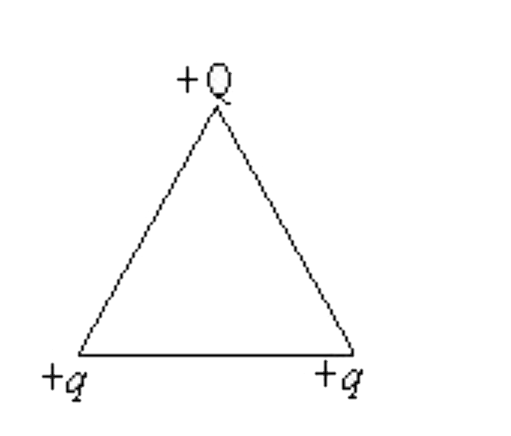Two identical charges of each are at the two vertices of an equilateral triangle. The charge at the third vertex that makes the electrostatic potential energy of the system zero is................
Step by step video & image solution for Two identical charges of each are at the two vertices of an equilateral triangle. The charge at the third vertex that makes the electrostatic potential energy of the system zero is................ by Physics experts to help you in doubts & scoring excellent marks in Class 12 exams.
Similar Questions
Knowledge Check
- Question 1 - Select One or More
If two vertices of an equilateral triangle are (1,1)and(−1,1) then the third vertex may be
A(−√3,−√3)B(−√3,√3)C(√3,−√3)D(√3,√3) - Question 2 - Select One or More
If A(a,a),B(−a,−a) are two vertices of an equilateral triangle then its thrid vertex is
A(a√32,−a√32)B(−a√3,a√3)C(a√3,a√3)D(−a√3,−a√3) - Question 3 - Select One
If (2,0) and (-2, 0) are the two vertices of an equilateral triangle , then the third vertex can be _______.
A(0,0)B(2,−2)C(0,2√3)D(√3,√3)
A point charge q is kept at each of vertices of an equilateral triangle having each side r.Total electrostatic potential energy of the system is:
View SolutionThree charges are placed at the vertex of an equilateral triangle as shown in figure. The value of Q, for which the electrostatic potential energy of the system is zero, is
 View Solution
View SolutionTwo charge +Q each are placed at the two verticles of an equilateral triangle of side a .The intensity of electric field at the third vertex is
View SolutionThree point charges +q, +2q and Q are placed at the three vertices of an equilateral triangle. Find the value of charge Q (in terms of q), so that electric potential energy of the system is zero.
View SolutionTwo vertices of an equilateral triangle are (0,0)and(0,2√3). Find the third vertex
View Solution
